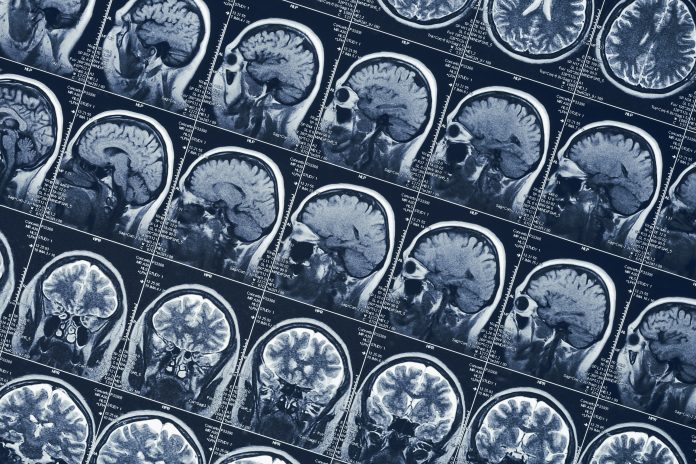Prof Monica Di Luca, President, European Brain Council, sheds light on the greater impact of Brexit in terms of health and brain research being up for negotiation
Over the last decades, collaboration between the EU27 countries and the UK has been an important factor driving research and innovation in a wide range of therapeutic areas and ensuring the availability of innovative treatments, including in the brain research space. The UK has been a major contributor to health research and clinical trials in Europe and UK partners are often closely involved in research projects funded by the EU. The UK has supported and participated in a wide range of EU health-related programmes, platforms and networks, with many UK-based institutions leading research consortia.
COVID-19
Moreover, the EU27 and UK currently closely cooperate as regards the authorisation, testing and mutual recognition of medicines and medical devices, which is crucial for ensuring patient access to potentially life-saving treatments. These issues have become even more important in light of the COVID-19 pandemic, which makes it paramount that health collaboration, to the greatest possible extent, is maintained after the transition period ends on 31st December 2020.
If the COVID-19 pandemic has taught us anything, it’s that, as a Union, we are not fully prepared nor capable of individually tackling the majority of health epidemics we are currently facing or will potentially face in the coming future. Understanding even the basic mechanisms of cancer took researchers decades and still today, an EU cancer plan and mission is a basic necessity for the continued research behind the disease. What can be said for diseases of the brain, which continue to both confound and fascinate researchers all over the world? COVID-19 shook European health systems to their cores and continues to do so until some form of normal can be found through the discovery of a vaccine. In times of lockdown and the unknown, we forget that many other diseases exist – albeit non-communicable – that continue to affect people without proper treatment or cures in sight.
Non-communicable diseases (NCDs)
The work of organisations like the European Brain Council, calling on the European Institutions to acknowledge the full burden of brain disorders, stems from a disproportionate response from most health and research-related frameworks in addressing the burden. In outlining its recent plans for the EU4Health programme, the European Commission speaks of non- communicable diseases (NCDs) and mentions mental health in areas where action is required, but neurology has been omitted, as previously, from the Commission’s health priorities.
Brain disorders – neurological and mental alike – join musculoskeletal disorders, cardiovascular disorders and tumours to make up the largest burden of noncommunicable diseases (NCDs) in Europe and worldwide. In fact, due to a rapidly ageing society, brain disorders, when combined, look set to become the leading burden on society. Strikingly, brain disorders account for roughly a third of total years lost to death and disability from all diseases globally1 and neurological disorders alone are the leading cause of death worldwide second only to heart disease.2 Despite progress by researchers, this burden continues to grow as the population ages and science cannot keep up with the pace. The brain community can, for the most part, identify the largest needs: sustained funding and support play a key role, but strengthened and improved frameworks for collaboration in research play the largest role if any progress can be made to address this NCDs epidemic.
EU research schemes
The UK and the EU27 countries are currently in the process of negotiating the agreement on the future relationship between the two blocs. Given the many health-related issues that are at stake, it is crucial that health does not get overlooked in the current negotiations. Amongst other issues, this would entail that customs cooperation on medicines and medical devices as well as reciprocal healthcare arrangements are maintained and preserved as part of the future relationship.
Furthermore, the UK has contributed greatly to health research funded under EU research schemes. As part of the ongoing negotiations, the UK and the EU have been discussing the possible participation of the UK in EU programmes, including in the Horizon Europe programme that is set to start in 2021. In order for this important collaboration in health and research to prosper, it is key that decision-makers commit to full association of the UK to the Horizon Europe programme as well as UK inclusion in Europe-wide research projects and partnerships.
No further barriers should be put in place that hinder EU and UK scientists in their efforts to work, travel and conduct research in both blocs and UK and EU regulations across research and clinical trials should remain aligned. This would not only enable the “extended Europe” to remain a hub for research and innovation, but it would ultimately also strengthen the work of both the UK and EU governments to address the impact of brain disorders, which are widespread and highly disabling conditions.
We must learn from the COVID-19 experience that we are stronger and more capable when working in collaboration. Though the UK breaks away from the Union, it is crucial that our partnership and collaboration remains, for the sake of cross-border science, education and for the future of brain research and those it impacts.
References
- Burden of brain disorders in Europe in 2017 and comparison with other non-communicable disease groups; Alberto Raggi, Matilde Leonardi; The Journal of Neurology, Neurosurgery and Psychiatry; http://dx.doi.org/10.1136/jnnp-2019-320466
- The global burden of neurological disorders; William M Carroll; The Lancet Neurology; https://doi.org/10.1016/S1474-4422(19)30029-8.
“The EBRA project has received funding from the European Union’s Horizon 2020 research and innovation programme under grant agreement No 825348”











